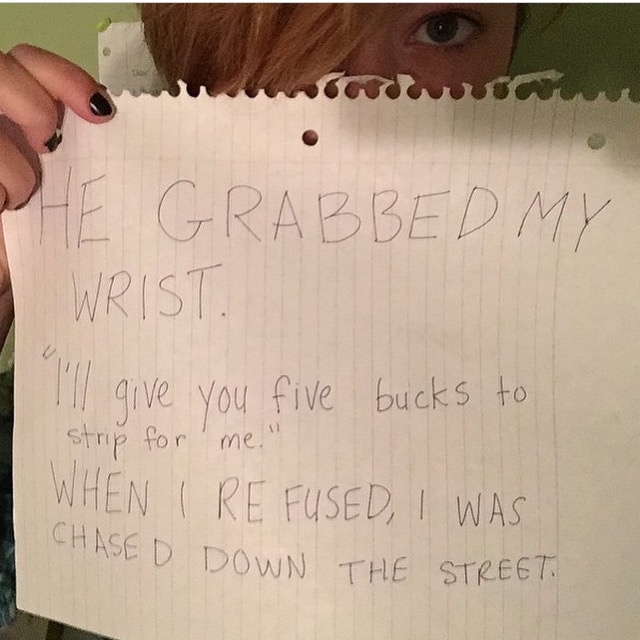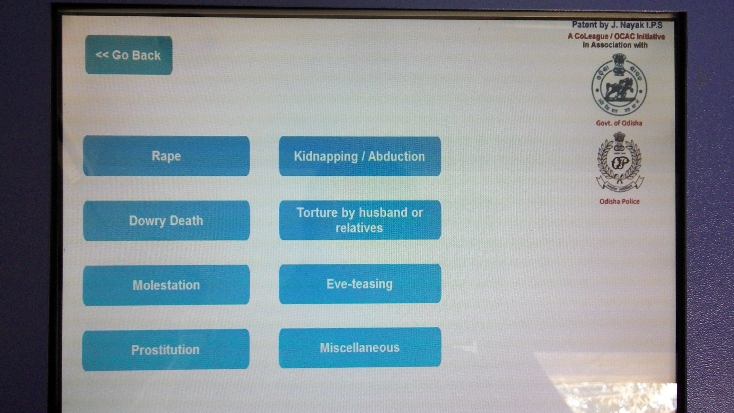Dylan Jane Manderlink, Arkansas, USA, SSH Blog Correspondent
As a recent transplant to the rural south from Boston, MA, I have experienced a great deal of shock that comes from the geographical and cultural differences between a northern city and a rural town in the south. I have also faced differences in human experiences that have propelled me into conversations that I never thought I’d have.
One of the biggest changes I noticed in my new life is how I now felt while walking through a public space. Walking along my town’s quaint Main Street, I am greeted with warm southern hospitality and have not been subjected to catcalls, leery eyes, and unwanted attention. Now, that’s not to say that catcalling doesn’t exist in southern areas, but at least in my personal experience so far, I have not yet been exposed to it. My existence in a public space feels different now and because of that, I feel motivated to speak out about the street harassment that plagues urban environments and spread awareness of it in my new community.
As a 20-something first-year teacher, my students feel very comfortable seeking advice from me, sharing their concerns, venting about their stressors, and updating me on their lives. I have been grateful for the opportunities I’ve had to build meaningful relationships with my high school students. The connections I’ve been able to make with my students have helped us develop a common ground, despite our geographical and cultural differences. Through establishing this common ground, an important dialogue has been opened between me and my students concerning a variety of hard-hitting and sensitive issues.
Recently, one of my female students expressed frustration and discomfort with the way male students look at her and talk about her outfits and body. She asked me if I had ever experienced uninvited and uncomfortable situations like that. I told her that because of street harassment I had, especially while living in Boston.
Despite living in very different regions of the United States, the conversations I have had about street harassment with my students have helped develop a vital and ongoing dialogue about female empowerment and the unfortunate objectification of female bodies in the public and media. Most of my students were unaware of street harassment until I opened up to them about my personal experiences, the experiences of my friends, and the reality of it in our society today. Through these productive conversations and teachable moments, I have realized how important opening up a channel of dialogue amongst young people in a rural area about street harassment, gender-based violence, and the treatment of self-identified women in society can be.
Our geographical differences should not equate to an unawareness of social injustice. I believe it is our duty as civilians and social activists to generate meaningful conversations that spark change, awareness, and genuine concern for the well-being of others across our nation’s zip codes and beyond our country’s borders. Of course it’s important to note that there are many regional differences in our nation that bring about challenges, injustices, and ailments that are unique to that environment, but I think we are doing a disservice to our nation and world’s social injustices by not equalizing awareness and attention to these issues. The injustices that plague one community, affect us all.
The more we are unafraid to approach these tough but significant conversations, the more we can rally around solutions to issues that are debasing populations and the basic humanity of people. These cross-cultural and cross-geographical conversations have the potential to defy the physical barriers that separate us and create more unity than we may have thought.
As a teacher, I have the privilege of initiating and partaking in important conversations like these everyday with my students. But I understand that some careers don’t allow this to happen as frequently or accessibly as mine. With that said, my charge to you is to fearlessly approach these conversations with people who you share commonalities with but also differ greatly from. Often, it’s through our differing human experiences that we can construct a diverse, deep, and productive conversation that has the potential to lead to solutions to some of our society’s most complex and murky problems. Despite my students not having been exposed to street harassment before, they have gained a new perspective on a societal injustice that impacts us all.
Dylan is a recent graduate of Emerson College and currently teaches 8th, 10th, and 11th grade Digital Communications and Audio/Visual Technology in an Arkansas high school. You can visit her personal blog and follow her on Twitter @DylanManderlink.


